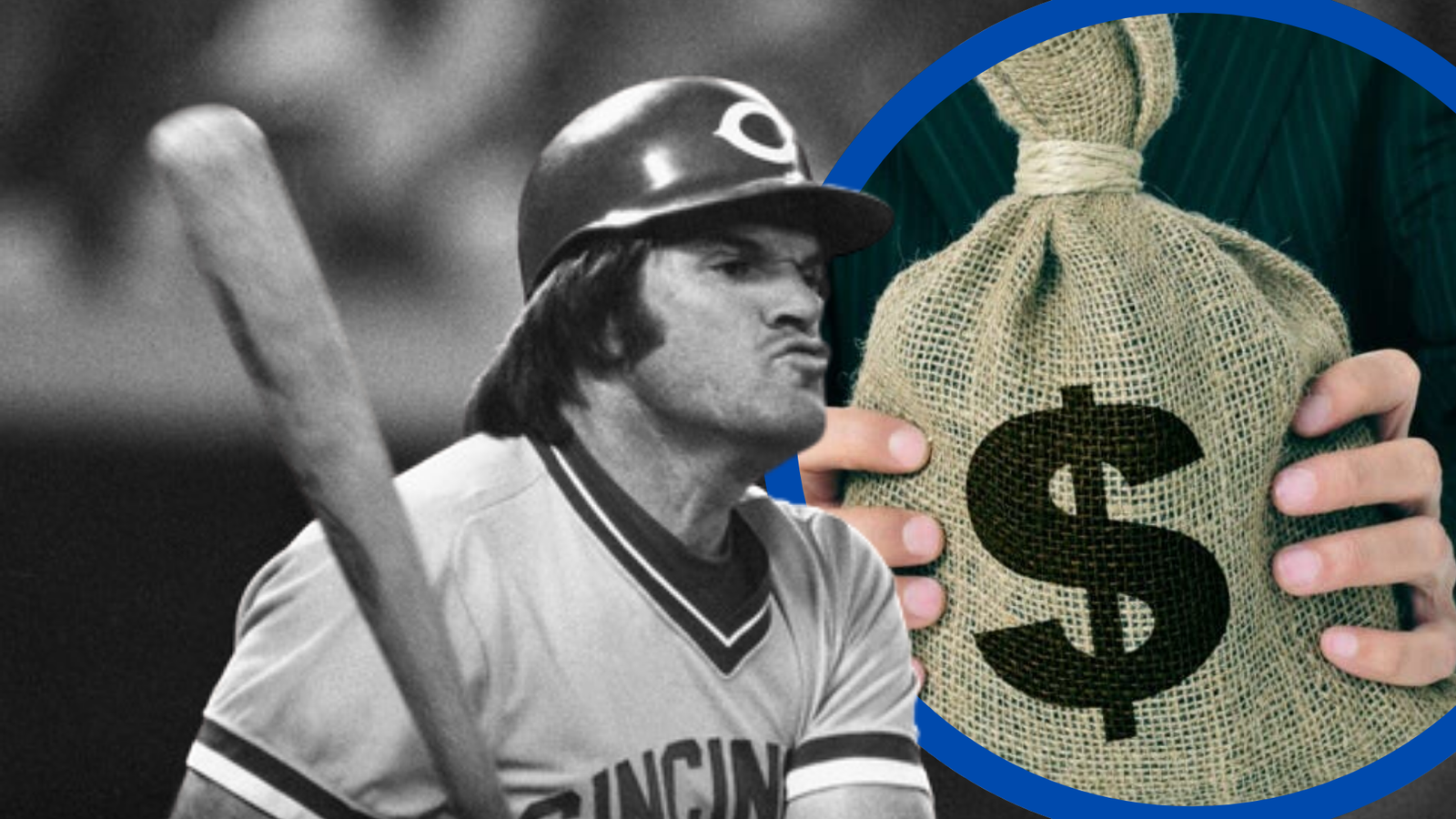Early Life and Baseball Stardom
Pete Rose, known affectionately as “Charlie Hustle,” was born in Cincinnati, Ohio on April 14, 1941. From an early age, it was clear Rose was destined for the world of sports. Raised in a working-class family, Rose was encouraged to pursue athletics, and he excelled in both football and baseball during his high school years. His passion, however, lay with baseball—a passion that would eventually lead him to become one of the most accomplished and talked-about figures in Major League Baseball history.
In 1963, Rose debuted with the Cincinnati Reds, embarking on a remarkable 24-season career across three teams: the Reds, the Philadelphia Phillies, and the Montreal Expos. His tireless work ethic and never-say-die attitude earned him the moniker “Charlie Hustle,” a name he would live up to throughout his professional life. Over the years, he amassed 4,256 hits—the most in MLB history—a still-standing record. He was a 17-time All-Star, a three-time World Series champion, and the recipient of numerous individual honors, including a National League MVP Award and multiple batting titles.
The Financial Peaks of a Stellar Career
While Pete Rose was celebrated for his achievements on the field, his financial earnings reflected both his talent and the evolving nature of professional sports compensation during his era. He earned an estimated $7 million throughout his playing and managerial career. Though that may seem modest by today’s standards, it was significant during the 1970s and 1980s.
His most notable contract came in 1979 when he signed with the Philadelphia Phillies for $3.225 million over four years—making him the highest-paid player in the league then. Additional managerial roles and endorsement deals helped boost his income during and immediately following his professional baseball career. However, legal battles and public scandals would later offset much of this financial success.
The Gambling Scandal and Its Fallout
Despite his on-field excellence, Pete Rose’s legacy took a dark turn in 1989 when he was handed a lifetime ban from baseball due to allegations of gambling on MLB games. As a manager for the Cincinnati Reds, Rose was found to have placed bets on games—including those involving his own team. Although initially denied the accusations, he eventually admitted to betting on baseball in a 2004 autobiography.
The lifetime ban came with severe consequences. Most significantly, despite his overwhelming statistical qualifications, he was ineligible for induction into the Baseball Hall of Fame. More subtly, the ban cut off several potential income streams that retired sports legends often enjoy, including high-paying speaking engagements, endorsements, and post-career coaching or media roles. Rose estimated the ban may have cost him over $100 million in lost revenue and opportunities.
Life After Baseball: Seeking Redemption and Revenue
Even with the ban, Pete Rose remained a public figure, often appearing at autograph signings, memorabilia shows, and various sports events. He maintained a steady income from these ventures for years, reportedly earning between $600,000 and $1.2 million annually during peak years.
Rose also ventured into media, joining the cast of a reality TV show and briefly working as a baseball analyst. In 2015, he was hired by a major sports network as a commentator, only to be removed a year later after more personal controversies resurfaced. These events, coupled with past legal and tax issues, placed further strain on his financial standing and public image.
Despite all this, Rose never completely faded from the limelight. His signing events, interviews, and controversial appearances kept his name in the headlines for decades. He remained a polarizing figure—celebrated for his accomplishments and criticized for his missteps.
Health Struggles and Legal Battles
In his later years, Rose’s health became a growing concern. He revealed in legal documents that he suffered from multiple conditions, including a serious heart ailment and mobility issues. These declarations came during a divorce settlement in which he claimed he was disabled and required medication for blood clotting and chronic pain.
These revelations painted a picture of a man who, once known for his relentless hustle on the baseball field, was struggling physically and financially. The same court documents also revealed dwindling finances and a dependency on income from personal appearances and memorabilia signings to maintain his lifestyle.
Real Estate and Assets
Pete Rose invested in real estate throughout his life, though his portfolio was far from extravagant compared to modern sports figures. He owned a few properties, most notably a Sherman Oaks, California home. This residence, purchased in the late 1990s, was sold in 2014 for a significant profit, offering some financial cushion during his later years.
Despite having earned millions throughout his life, the combination of legal issues, medical costs, and limited income opportunities gradually diminished his net worth. By his death, Pete Rose’s net worth was estimated to be around $3 million, which might seem modest considering his legendary status in professional sports.
Death and Reflection on a Complicated Legacy
Pete Rose passed away on September 30, 2024, at 83. His death brought an outpouring of reactions across the sports world, with fans, analysts, and former players reflecting on the dichotomy of his life—a man who gave everything on the field but made costly errors off it.
His legacy remains one of baseball’s most complex. Statistically, he is among the greatest ever to play the game. His records, particularly the all-time hits record, are monumental achievements unlikely to be broken. Yet the cloud of scandal and permanent exclusion from the Hall of Fame remain stark reminders of the consequences of personal choices.
The debate over whether Pete Rose deserves induction into the Hall of Fame continues. To some, his accomplishments should outweigh his misdeeds. To others, the integrity of the sport must be preserved at all costs. Regardless of where one stands, there’s no denying the impact he had on the game of baseball—and American sports culture more broadly.
Final Thoughts on Pete Rose’s Net Worth and Influence
At the time of his passing, Pete Rose Net Worth was estimated at $3 million—a far cry from the fortune he might have amassed had his career remained scandal-free. Yet this figure doesn’t fully encapsulate the value he brought to the sport or the lessons his life offers.
Rose’s story is both a cautionary tale and an enduring testament to the heights that relentless dedication can achieve. It highlights how greatness on the field does not guarantee peace or prosperity off it. His records will remain in the books, his name will continue to stir debate, and his flawed and fascinating journey will be remembered for generations to come.
Also, Read The Following: Javaughn J. Porter.




